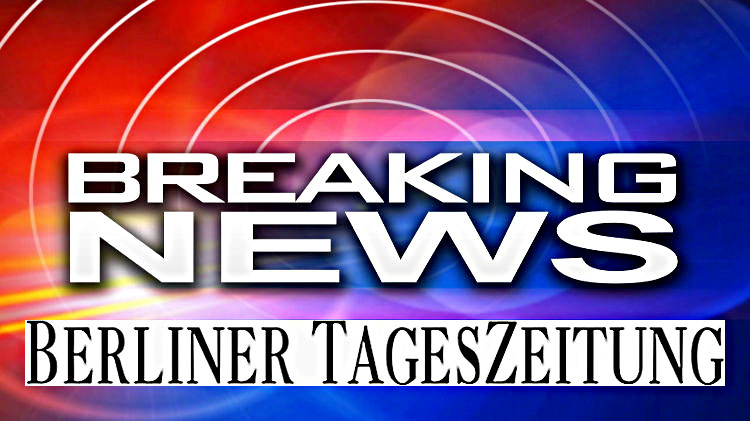
| RBGPF | 100% | 60.27 | $ | |
| CMSC | -0.54% | 22.17 | $ | |
| SCS | -3.73% | 10.2 | $ | |
| CMSD | -1.56% | 22.48 | $ | |
| AZN | -4.06% | 65.79 | $ | |
| BCC | -3.86% | 91.89 | $ | |
| BTI | -1.09% | 39.43 | $ | |
| GSK | -4.85% | 34.84 | $ | |
| NGG | -4.82% | 62.9 | $ | |
| RIO | -0.2% | 54.56 | $ | |
| RELX | -5.78% | 45.53 | $ | |
| JRI | -6.22% | 11.26 | $ | |
| BCE | -2.85% | 22.08 | $ | |
| RYCEF | -0.98% | 8.15 | $ | |
| BP | -4.45% | 27.17 | $ | |
| VOD | -1.8% | 8.35 | $ |
UK warns Putin faces Ukraine 'quagmire'

Russia risks becoming embroiled in a "terrible quagmire" if it invades Ukraine, British Foreign Secretary Liz Truss warned Friday, raising the spectre of a prolonged, bloody and sapping conflict for Moscow.
In a speech in Australia, the UK's top diplomat issued a blunt and personal warning to Russian President Vladimir Putin that he is on the brink of making a major strategic blunder.
He "has not learned the lessons of history," Truss told Sydney's Lowy Institute, urging Putin to "desist and step back from Ukraine before he makes a massive strategic mistake."
"Invasion will only lead to a terrible quagmire and loss of life, as we know from the Soviet-Afghan war and conflict in Chechnya," she said, referencing Moscow's past conflicts that cost hundreds of thousands of lives.
Tens of thousands of Russian troops are massed on Ukraine's border, along with an arsenal of tanks, fighting vehicles, artillery and missiles.
The drumbeat of invasion has been growing for months and the White House believes an attack could now come "at any point."
Few military experts believe that Kyiv's smaller forces -- although rapidly modernising -- could repel an outright Russian invasion.
But Truss underscored the risks for the Kremlin even if it has the military upper hand, suggesting a protracted Ukrainian resistance that ensnares occupying Russian forces.
"The Ukrainians will fight this, it could be a quagmire" she said.
"Ukraine is a proud country with a long history. They have known invading forces before from the Mongols to the Tartars... their resilience runs deep. If they have to, Ukrainians will fight to defend their country."
Russia has inflicted pressure on Ukraine since an uprising nearly a decade ago toppled a government that had resisted calls to move closer to the West.
Moscow seized the Crimean peninsula in 2014 when a pro-Russian insurgency broke out in eastern Ukraine that has since claimed more than 13,000 lives.
Britain is among a handful of Western nations rushing lethal weapons -- like anti-tank missiles -- to Ukraine, dramatically increasing the prospect of Russian casualties.
Experts at the Atlantic Council in Washington have pointed to better readiness among Ukraine's forces and much-improved lines of defence compared to past Russian and Russian-backed campaigns in eastern and southern Ukraine.
Truss also said that a Russian invasion would bring "severe consequences" in the form of Western sanctions on "the financial sector and individuals".
- 'Step up' -
The top diplomat is currently on an official visit to Australia alongside British Defence Secretary Ben Wallace.
The trip comes as Western officials engage in frantic shuttle diplomacy, in part to prevent war, but also to overcome differences in how to respond to any Russian aggression.
Truss urged allies to "step up" in the face of the crisis, linking the Ukraine conflict to a slew of increasingly emboldened authoritarian regimes who are looking to "export dictatorship."
"Together with our allies, we will continue to stand with Ukraine and urge Russia to de-escalate and engage in meaningful discussions. What happens in Eastern Europe matters for the world," she said.
That won support in Australia -- which has come under fierce diplomatic, economic and political pressure from China, another authoritarian power, in recent years.
Speaking in Sydney at the conclusion of meetings on Friday, UK and Australian defence ministers drew parallels between rising tensions today and the pre-war 1930s.
Australian Defence Minister Peter Dutton echoed Truss' call for "the free world to stand its ground."
"When you see Russia act the way they do, it encourages other bullies and other dictatorships to do the same, and particularly if there's no pushback from the rest of the world," Dutton told the Seven Network.
"Thousands of people will die and that is not a circumstance that anyone wants to see prevail. The build-up of the Russian troops is incredibly concerning."
I. Johansson--BTZ

 London
London

 Manchester
Manchester
 Glasgow
Glasgow
 Dublin
Dublin
 Belfast
Belfast
 Washington
Washington
 Denver
Denver
 Atlanta
Atlanta
 Dallas
Dallas
 Houston Texas
Houston Texas
 New Orleans
New Orleans
 El Paso
El Paso
 Phoenix
Phoenix
 Los Angeles
Los Angeles

